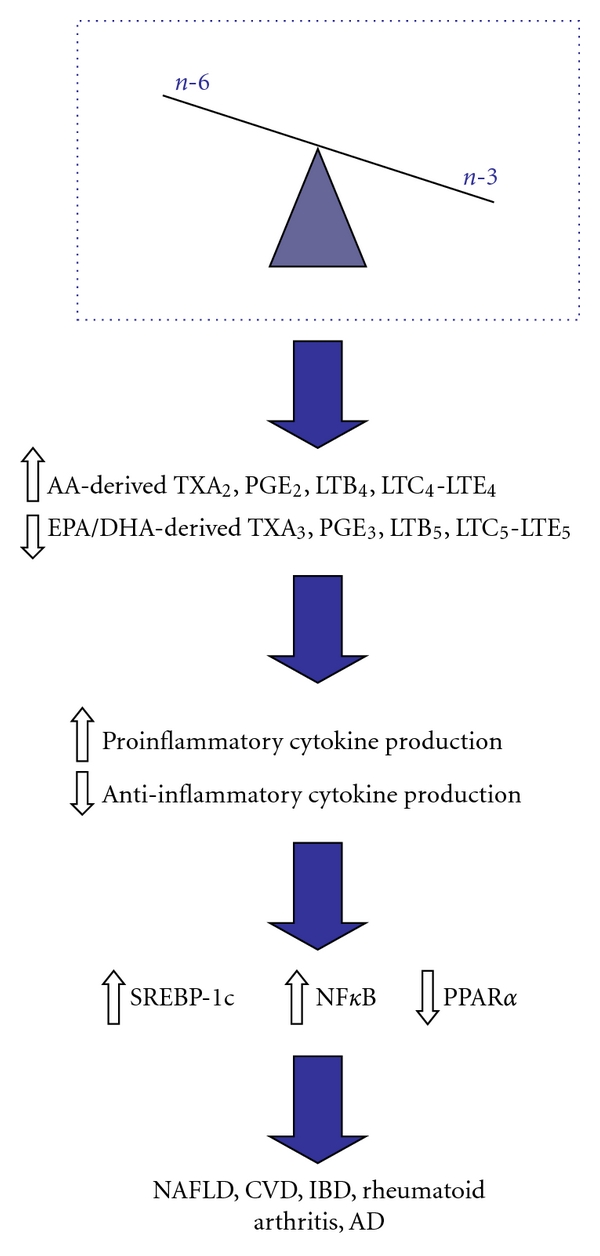Figure 2.

Effects of unbalanced n-6 : n-3 dietary fatty acid intake on development of various diseases of inflammation. Dietary imbalance in the consumption of n-6 and n-3 PUFA, representative of the Western diet. Greater consumption of n-6 PUFA leads to an increase in their metabolism to their LC-PUFA derivatives (AA). Decreases in n-3 PUFA consumption leads to a decrease in their metabolism to their LC-PUFA derivatives (EPA/DHA). The increase in AA in cell membrane phospholipids leads to an increase in COX and LOX enzyme production of AA-derived eicosanoids and a decrease in EPA/DHA-derived eicosanoids, leading to an increase in inflammation and proinflammatory cytokine production. This in turn leads to a decrease in PPARα gene expression, while there is an increase in both SREBP-1c and NFκB gene expression. This change in gene expression can also cause an increase in lipogenesis, as well as increasing inflammation. The result is an increase in various diseases of inflammation, some of which are highlighted in the figure.
